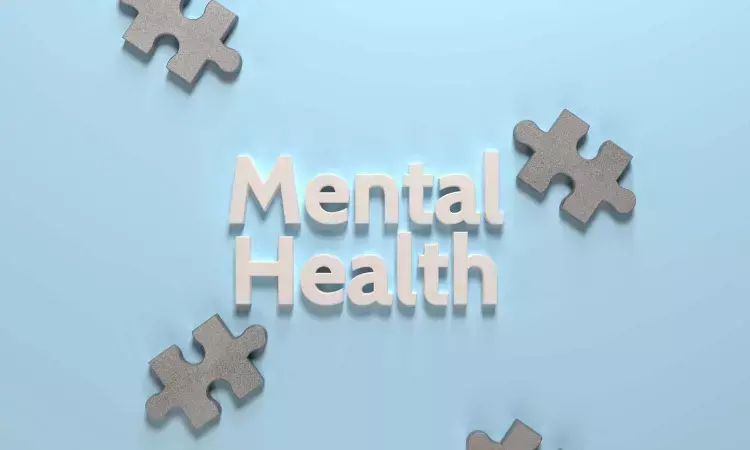- Home
- Medical news & Guidelines
- Anesthesiology
- Cardiology and CTVS
- Critical Care
- Dentistry
- Dermatology
- Diabetes and Endocrinology
- ENT
- Gastroenterology
- Medicine
- Nephrology
- Neurology
- Obstretics-Gynaecology
- Oncology
- Ophthalmology
- Orthopaedics
- Pediatrics-Neonatology
- Psychiatry
- Pulmonology
- Radiology
- Surgery
- Urology
- Laboratory Medicine
- Diet
- Nursing
- Paramedical
- Physiotherapy
- Health news
- Fact Check
- Bone Health Fact Check
- Brain Health Fact Check
- Cancer Related Fact Check
- Child Care Fact Check
- Dental and oral health fact check
- Diabetes and metabolic health fact check
- Diet and Nutrition Fact Check
- Eye and ENT Care Fact Check
- Fitness fact check
- Gut health fact check
- Heart health fact check
- Kidney health fact check
- Medical education fact check
- Men's health fact check
- Respiratory fact check
- Skin and hair care fact check
- Vaccine and Immunization fact check
- Women's health fact check
- AYUSH
- State News
- Andaman and Nicobar Islands
- Andhra Pradesh
- Arunachal Pradesh
- Assam
- Bihar
- Chandigarh
- Chattisgarh
- Dadra and Nagar Haveli
- Daman and Diu
- Delhi
- Goa
- Gujarat
- Haryana
- Himachal Pradesh
- Jammu & Kashmir
- Jharkhand
- Karnataka
- Kerala
- Ladakh
- Lakshadweep
- Madhya Pradesh
- Maharashtra
- Manipur
- Meghalaya
- Mizoram
- Nagaland
- Odisha
- Puducherry
- Punjab
- Rajasthan
- Sikkim
- Tamil Nadu
- Telangana
- Tripura
- Uttar Pradesh
- Uttrakhand
- West Bengal
- Medical Education
- Industry
COVID-19 pandemic linked to long-lasting negative impact on adolescent mental health and substance use: Lancet

Iceland: A recent study published in The Lancet Child & Adolescent Health noted the persistence of a decrease in mental well-being and an increase in depressive symptoms 1-2 years into the COVID-19 pandemic among adolescents aged 13-18-year-olds.
The population-based study based on survey responses from a nationwide sample of over 64,000 North American and Icelandic adolescents assessed before and up to two years into the pandemic showed a rise in adolescent mental health problems to be consistent across gender. The study was conducted by Columbia University Teachers College and Mailman School of Public Health faculty and a team of Icelandic and other North American clinical, behavioural and social scientists.
This same research team published a population-based study in The Lancet Psychiatry in 2021, showing an increase in depressive symptoms and a decrease in mental well-being among 13-18-year-old adolescents within one year of the global spread of the COVID-19 pandemic. A decline in substance use, particularly cigarette smoking, e-cigarette use and alcohol intoxication, was also observed. Expanding on these findings, this new study shows that the negative effect on adolescent mental health has persisted up to two years into the pandemic.
"It is worrisome that we still see an increase in mental health problems among adolescents two years into the pandemic. And this is occurring despite social restrictions having been eased in Iceland," said Thorhildur Halldorsdottir, assistant professor of psychology at Reykjavik University and senior author of the study.
The initial decrease in cigarette smoking and e-cigarette use observed shortly after the arrival of the pandemic was also maintained up to two years into the pandemic. The frequency of adolescent alcohol intoxication, however, appeared to be returning to pre-pandemic levels. "It is of course positive to see that the reduction in cigarette smoking and vaping has been maintained," said Dr. Ingibjorg Eva Thorisdottir, chief data analyst at Planet Youth and lead author of the study. She continued: "We will need to monitor alcohol intoxication among adolescents in years to come, especially given the increase in mental health problems."
The association of immigration status, residency, parental social support and nightly sleep duration with adolescent mental health and substance use was also examined in this study. Parental social support and an average of 8 hours or more of sleep per night was associated with better mental health and less substance use among adolescents. The relationship between immigration status and residency with adolescent mental health was less clear. These findings suggest that stress exposure, like the COVID-19 pandemic, affects all adolescents to some extent rather than only vulnerable subgroups.
As such, policymakers should consider implementing large-scale evidence-based prevention efforts focusing on depressive symptoms to mitigate the negative effect of the pandemic," said John Allegrante, the Charles Irwin Lambert Professor of Health Behavior and Education at Teachers College and professor of sociomedical sciences at Columbia Mailman School of Public Health, and a senior collaborating investigator on the study.
Reference:
Ingibjorg Eva Thorisdottir, Gudjon Agustsson, Saeunn Yr Oskarsdottir, Alfgeir Logi Kristjansson, Bryndis Bjork Asgeirsdottir, Inga Dora Sigfusdottir, Heiddis Bjork Valdimarsdottir, John Philip Allegrante, Thorhildur Halldorsdottir. Effect of the COVID-19 pandemic on adolescent mental health and substance use up to March, 2022, in Iceland: a repeated, cross-sectional, population-based study. The Lancet Child & Adolescent Health, 2023; DOI: 10.1016/S2352-4642(23)00022-6.
Dr Kamal Kant Kohli-MBBS, DTCD- a chest specialist with more than 30 years of practice and a flair for writing clinical articles, Dr Kamal Kant Kohli joined Medical Dialogues as a Chief Editor of Medical News. Besides writing articles, as an editor, he proofreads and verifies all the medical content published on Medical Dialogues including those coming from journals, studies,medical conferences,guidelines etc. Email: drkohli@medicaldialogues.in. Contact no. 011-43720751


